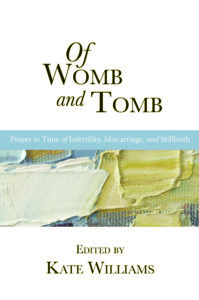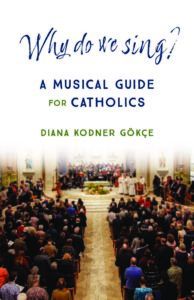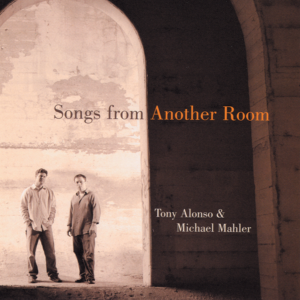On the one hand, we are ministers, singing in the church choir is not like concert performance, and we want to be hospitable and welcoming to those who feel called to serve. Shouldn’t everyone who wants to sing be able to join the choir?
On the other hand, what if someone who feels called to serve is unable to match pitch, or sings perpetually flat, or sticks out of the texture with a loud and wide vibrato?
For many of us, it’s the start of the choir season right about now, and most of us have at some point in our life as ministers needed to address the potential conflict inherent in the two questions above in some way. For some, it’s easy, and the answer is self-evident; we don’t even have to think about which direction we go with this question. Perhaps, if we are honest with ourselves, we may have harbored a little judgment in our hearts about those different from us who fall in the other direction? (Maybe not. 😉 )
For myself, as with many things, my preference is to take a both-and or middle-of-the-road kind of approach to choir membership. The word “audition” can feel threatening or loaded, filled as it is with the inevitable framing of the end result: do you make it in, or not? Are you good enough, or not? On the other hand, I learned many years ago that it wasn’t good for anyone when I just invited people to show up, and dropped them into the choir immediately without knowing anything about their experience, skills, voice type, ears, and so on.
So when someone new steps forward wishing to join the choir, I do not have an “audition” per se, or rather, I don’t call it that. I invite them to come in for a few minutes so I can “hear their voice and get a sense for where they will fit best.” Essentially, I want to know who they are, what they sound like, and whether they will be able to handle the demands of the ensemble–demands established not by me, but by the members themselves and the rhythm they have been happy to settle into over the years. I have been fortunate enough to direct choirs whose singers, while they love ministry, also come because they love music and singing and being part of an ensemble that can challenge them to do the kind of singing they can’t do in the rest of their lives. Rehearsals tend to move pretty quickly, and we spend our time well and efficiently.
When I do a “voice check” (what I informally call the not-audition meeting) with a new singer, I generally begin just by asking them to tell me about themselves, where they came from and what kind of singing they have done in the past and why they enjoy being part of a choir. I ask them if they have any experience reading music, reinforcing that this is not a deal-breaker at all and that many choir members are not strong readers, but that it’s good for me to know. I ask what voice part they usually sing. Then I will vocalize the singer up and down the scale: I start sort of mid-range and take them down into the lower register first, and then up into the higher register. Fairly frequently I’ll hear an “alto” whose vocal color suggests that they might actually be a soprano, but they are not comfortable with higher pitches; a little voice work and vocal tech to help them open up and lift the soft palate often works wonders, even in just a few minutes.
I also often invite them to sing something they like–any hymn or song, just so I can hear their natural voice. (I tell them about this beforehand, so I don’t catch them off guard.) And then I teach them a refrain or a verse of some piece we are working on–this gives me a chance to see how quickly they pick up something new, whether by reading or by ear. If they can sing it with confidence along with my voice and the piano, I stop singing and see if they can sing independently with the piano; if they can do that without difficulty, I’ll try harmonizing the alto part along with them to see if they can be independent even with another voice part going next to them. The idea is to just give them a little time to make music, just a two people singing together.
The whole process generally takes maybe 15-20 minutes, and it’s actually kind of fun. (Well, it’s fun for me; the level of relaxation and enjoyment the singer gets out of it seems to vary.) And it’s enough to give me a solid sense of who the person is and what kind of sound they have–beyond “you’re in the choir/you’re not in the choir,” going a little deeper. I get to to know them a little as people rather than just as “a voice,” and I get to learn what section they should be in, where they should stand, whether they will go high or low if a part splits…It helps me figure out what voices might be good to pair with theirs, whether they are the voice to put next to the less strong voices or whether they will need to stand next to someone who is really solid on their part in order to be confident.
And occasionally…it tells me that this person is simply not ready for this ensemble. And those are the tough ones. Because if they are not ready, they are not ready. And they should probably not join.
I can hear a few people drawing up to argue with me here, to call me exclusionary, to tell me that music and ministry are for everyone–and in a way they are right, everyone should have the opportunity to raise their voices and sing praise to God with a joyful new song…
But…hear me out. Yes, we are ministers, and we are hospitable, and we are pastoral. But sometimes a kind and loving “I do not think this would be good for you right now” is the most hospitable response we can give. For a lot of reasons.
First: Ultimately, the parish musical leadership has a responsibility to one another and to the assembly, to be able to lead them in making music. If the leadership is not solid, then not only does their music suffer, but so does that of the entire assembly. This is not about creating a “better musical performance”–not at all. This is about solid leadership, and making sure those who stand wherever they stand and support the assembly’s singing are fully able to do this–or at the very least, have the potential to learn to do it and not impede the overall leadership ability of the choir as they do their own growing.
Second: If the liturgical ministries of the parish are true to their mission of raising up the voice of the body of Christ, helping bring them to full, active, and conscious participation, then those in the pews are singing as well. There should be no sense that suggesting that the choir may not be the place for this new singer means that they are not to sing–on the contrary, if every person in our parish who could carry a tune was in the choir, there would be no assembly. (Yes. I firmly believe this.) If no one but the choir sings for your parish liturgies, that is the sign of a problem that goes much much deeper than whether this individual is ready to join the parish music ministry.
Third: if an ensemble of music-makers has found its rhythm, its speed, its style, and its way of working, and a new member comes in who is not equipped for it, it’s not just a question of disrupting that flow for those who are already in the group–the new member will invariably sense it too, know that they are not keeping up, know that they are not succeeding. And this can quickly become stressful and toxic–to the individual, to the ensemble, and to you as leader. This is no way to approach song and singing. We need to set our singers up for success, all the time. To say “yes” in the name of hospitality, knowing in advance that it sets up not only your existing group of singers but the new members themselves for something that is not success–this is, in the end, doing all of them, and the assembly you and they serve, a disservice.
It’s not an easy conversation, to be sure. Often I suggest to the hopeful chorister that they consider a voice class or voice lessons, just to get a better sense of how their vocal instrument works, and get more comfortable with making and tuning their vocal sounds…if they have pleasant voices but as yet lack the ability to pick up new music quickly, I always have the name and number of a director of a local community chorus to give them–a group responsible for one concert of music every few months, rather than a Mass every single week. If they are just on the edge of being able to be successful but not quite…I might invite them to join the choir for Christmas Eve, which is when we have a body of set repertoire that we get more extended time to work on, with specific rehearsal days and times. Sometimes I give the new singers themselves this choice, and say, “This feels like a big step for you to take right now, since things in the Sunday group are moving so fast, but I don’t want to discourage you or send you away–how would you feel about maybe joining our Christmas choir now, and seeing how that feels; if you like it and feel comfortable, then maybe you would want to step into the weekly choir come January?”
All of that said–most often, those who step forward wishing to join the music ministry in most places I have ministered are capable, and once they get past the early learning curve of picking up the music the larger group already knows, they are absolutely fine. If a non-reader (or even a reader, for that matter) wishes to join the group, I always warn them that we will pretty much never rehearse the well-known hymns and/or service music, and not to worry about it–I say, just do your best to keep up and be assured that those who have sung these pieces 284 times have got your back, and you will pick it up; a few years ago, they were the ones who didn’t know the music and they leaned on the solidity of the veterans while they learned it, and that’s how the church choir works. I suggest that they sing “under the radar” for the first few weeks until they learn to read the unspoken signals and assumptions, of which there are many, and which I will doubtless not remember to warn them about. I reassure them that the other members of the group will help them learn the ropes, and to not ever fear to ask questions, either of me or of their singing colleagues. I make sure I check in with new members a few weeks in, and then a few weeks after that, to see how they are doing and if they are getting more comfortable. And if it brings them joy.
We are ministers. Singing in the church choir is not like concert performance, it is a ministry of servant leadership, and it requires time and preparation. And we must always be hospitable and welcoming to those who feel called to serve.
How does this work in your parishes? I’d love to hear from others how they view this process, and what your method is in your own ministry–so please leave a comment!
















I’m sorry, but any ministry that claimed to follow Jesus Christ would not exclude ANYONE. You can’t have your cake and eat it too.
I actually used to agree with you, on this, wholeheartedly…but if the purpose of the ministry is not just to minister to the members of the ministry group, but for THOSE members to minister to others, it can get more complicated…I’ll repost here (slightly edited) a comment I made on the Facebook page for this site, about the moment in my ministry when I began seriously thinking about this…
“For many years I lived in the ‘anyone come who wants to’ model…but there was this one really formative moment when a lovely individual who simply couldn’t match pitch any more and was so hard of hearing that he could not sing together with the group at ALL (and yet continued to sing really loudly) had been in our choir for a couple of years. At the end of that second season, the unified tenor section (a group of LOVELY AND CARING AND DEAR individuals, two women and I think 3 more men) came to me in genuine sadness but also huge and deep frustration, to basically say that they had tried really hard but after two years of singing in this environment they had gotten to the point where coming to choir was something to dread rather than look forward to, and they just felt completely discouraged and hurting and they didn’t want to hurt his feelings or mine, but they could not keep doing this. This was not a nasty ultimatum kind of “he goes or we go” thing, but it was done in love and sorrow and with a “we just don’t know what to do” sense in it…I think for me in that moment something clicked, and I began to see my role as being one of pastoral care for EVERYONE who wanted to sing, and we had worked into a situation where, because this one really nice man no longer was able to do what he used to be able to do, no one in the group was actually able to do the singing they had come to love doing…it was really really hard. (In the end I think one of the other choir members who was her friend spoke gently to his wife about the situation, thus saving him and her from a “the choir director addressing the issue” confrontation, and she quietly eased him out without any loss of dignity on anyone’s part, especially his.) But I’ve never forgotten that moment, and the realization that sometimes I as a minister could not minister to everyone without losing someone else…”
Just my experience. And like I say above, I do not ever make a habit of excluding anyone I think would be comfortable and happy in any group I work with.
Thank you for this article. I think you’ve covered all the bases in a very charitable and helpful way. Singing in the choir isn’t for everyone and you point that out very gently. I’ve never had the ability, courage, fortitude, whatever you want to call it, to redirect someone to a “better” fit. You give some great strategies for how to address these issues of “All Are/Are Not Welcome”.